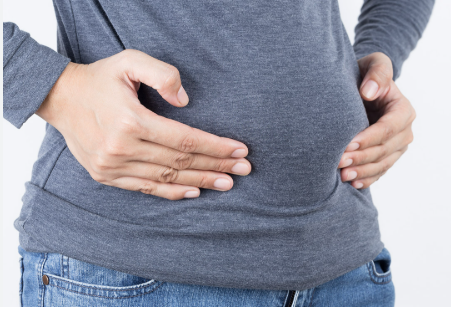
Here are 10 FAQs on abdominal bloating, based on commonly searched long-tail keywords:
Frequently Asked Questions About Abdominal Bloating
1. What are the most common causes of abdominal bloating?
Abdominal bloating is often caused by excess gas in the digestive tract. Common culprits include swallowing air (from eating/drinking too fast, chewing gum, or carbonated beverages), constipation, food intolerances (like lactose or gluten), irritable bowel syndrome (IBS), small intestinal bacterial overgrowth (SIBO), and certain1 high-fiber or gas-producing foods (e.g., beans, broccoli, onions).
2. How can I relieve abdominal bloating quickly?
For quick relief, try light exercise like walking to help move gas, drink peppermint or ginger tea, apply a gentle abdominal massage, or consider over-the-counter anti-gas medications like simethicone. Avoiding carbonated drinks and chewing gum can also help immediately.
3. What are the best home remedies for gas and bloating?
Effective home remedies include drinking ginger tea, peppermint tea, or chamomile tea, chewing on fennel seeds, consuming probiotics (through fermented foods or supplements), staying well-hydrated, and taking a short walk after meals. Apple cider vinegar may also help some individuals.
4. What foods should I avoid if I experience bloating and gas?
Foods commonly associated with bloating and gas include:
5. Is abdominal bloating a sign of something serious?
While often benign and related to diet or digestion, persistent or severe bloating can sometimes indicate a more serious underlying condition. This is especially true if accompanied by symptoms like unintentional weight loss, severe abdominal pain, bloody stools, persistent diarrhea or constipation, fever, or difficulty swallowing.
6. When should I see a doctor for bloating?
You should consult a doctor if your bloating is:
7. How can I find relief from abdominal bloating and constipation?
Addressing constipation is key. Increase your fiber intake gradually (from fruits, vegetables, whole grains), drink plenty of water, and engage in regular physical activity. Over-the-counter laxatives, fiber supplements, or stool softeners can also be considered, but consult a doctor for chronic constipation.
8. What causes abdominal bloating accompanied by diarrhea?
Bloating and diarrhea together can be caused by food poisoning, stomach flu (gastroenteritis), irritable bowel syndrome (IBS), small intestinal bacterial overgrowth (SIBO), celiac disease, inflammatory bowel disease (IBD), or certain medication side effects. Eating too much fiber or having food intolerances can also be factors.
9. What are common causes of abdominal bloating specifically in women?
In addition to general causes, women may experience bloating due to hormonal fluctuations related to menstruation (PMS), pregnancy, or menopause. Conditions like endometriosis, ovarian cysts, or ascites (fluid accumulation in the abdomen) can also lead to bloating in women.
10. What are some natural ways to reduce stomach bloating long-term?
Long-term reduction involves identifying and avoiding trigger foods, eating smaller and more frequent meals, eating slowly and mindfully, staying hydrated, incorporating regular exercise, managing stress, and maintaining a balanced gut microbiome (e.g., through probiotics). Gradual increases in dietary fiber can also help regulate digestion.